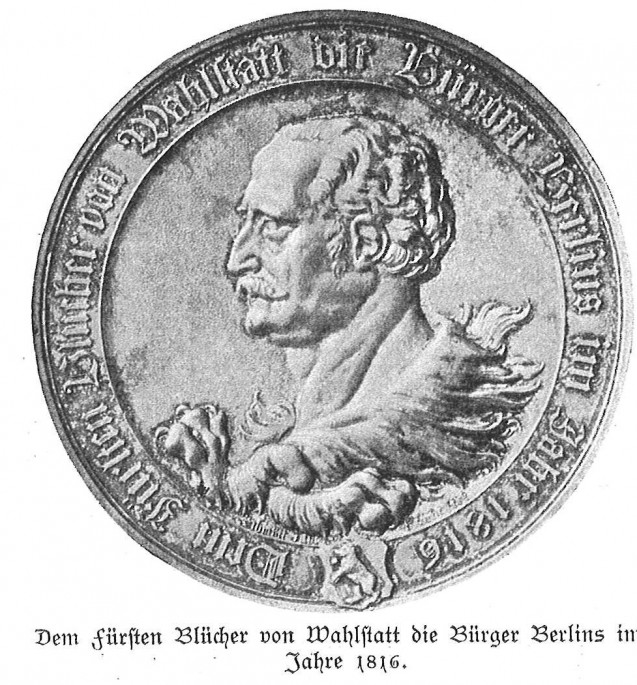Generalfeldmarschall Gebhard Leb(e)recht Fürst Blücher von Wahlstadt (Wahlstatt) (1742-1819)
The most successful and famous Prussian Army field commander of the period, Blücher was perhaps the most single-mindedly aggressive general employed by any belligerent. An uncomplicated, energic and outspoken leader, oblivious to personal danger, he has a place in German popular culture comparable with that of Wellington in Britain.
Blücher was said by General Scharnhorst to be the only man who did not fear Napoleon. He was born near Rostock (Prussia) in 1742 and was the son of a retired army captain. Blücher’s military service began between 1757 and 1758 with a hussar regiment raised for Swedish service. He was captured by Prussian hussars in 1760 and thereafter joined the Prussian army. He remained in Prussian service till 1770, when he was dismissed for insubordination, not to take up military service again until after the death of Emperor Frederick the Great. For the thirty years between his two phases of military activity, Blücher worked as a farmer. His military fervour was perhaps especially due to France’s humiliation of Prussia in the 1806 campaigns, during which he commanded a cavalry corps under Field Marshal Brunswick. Blücher made no secret of his hatred for the French, and so the terms of the 1807 Peace of Tilsit, dictated by Napoleon, expressly forbade him from holding senior command. On Prussia’s renaissance in 1813, he was appointed full general over the Prussian field forces. Indeed, the late nineteenth century historian Wilhelm Burckhardt joked that Napoleon was Blücher’s ‘best ally’, as Napoleon’s actions in Russia and afterwards provided Blücher with an opportunity to excel on the battlefield. It is generally thought that his stategic capabilities were limited, and he tended to see a separation between the political and military spheres, preferring the latter. He did, for example, place full trust in the Duke of Wellington and imagine a ‘Belle Alliance’ where the Duke did not. In June 1815, he was already in his early seventies (older German scholarship often refers to him as ‘der Greis’, ‘the old man’). He suffered a battering at Ligny when his horse was shot from underneath him, but pushed his soldiers on towards Waterloo. Indeed, he was known as ‘Marschall Vorwärts’ or ‘Alte Vorwärts’ (‘Marshal Forwards’ or ‘Old Man Onwards’) amongst the Prussians. Blücher formed a strong team with his Chief of General Staff, Gneisenau; the latter contributed brains, education and caution to the partnership, whilst the former’s influence was more inspirational. His fiery personality and aggression is often remarked upon in period accounts.
A coin honouring Blücher from 1816, reproduced in J. v. Pflugk-Harttung, 1813-1815: Illustrierte Geschichte der Befreiungskriege (Stuttgart: Union Deutsche Verlagsgesellschaft 1913), p. 416


